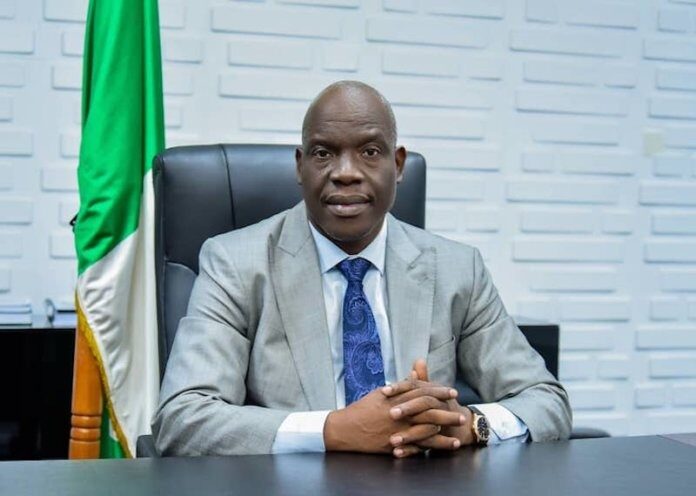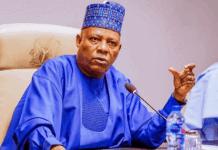Unpacking The 2024 Nigerian Licensing Round: A Game-Changer for Nigeria’s Oil and Gas Sector
UGO AMADI
As Nigeria embarks on its 2024 Licensing Round, the combination of robust natural resources, competitive regulatory framework and strategic incentives has created a favorable environment for investors. The country’s commitment to ensuring transparency, social inclusion, and sustainable development further signals a new era of certainty in the Oil and Gas industry. The 2024 Licensing Round therefore offers investors a significant opportunity to contribute to and benefit from Nigeria’s long-term energy growth.
Stating these positions at the Africa Oil Week Conference which ended in Cape Town, South Africa, on Thursday, the Nigerian Upstream Petroleum Regulatory Commission Chief Executive (CCE), Engr. Gbenga Komolafe highlighted that the licensing round features more than 31 oil blocks and is supported by a strong regulatory framework under the Petroleum Industry Act (PIA). Nigeria boasts vast untapped potential, including 209.26 trillion cubic feet (TCF) of Natural Gas reserves, 37.5 billion barrels of crude oil reserves, and an oil production capacity of 2.4 million barrels per day (bopd).
The CCE explained that in keeping with the provisions of the PIA, the Commission introduced comprehensive reforms and developed a regulatory framework aimed at modernising the licensing processes, enhancing stakeholder engagement, and ensuring environmental sustainability. The aim is to attract both local and international investments that will drive growth and innovation.
“We have issued a licensing round guideline and published a licensing round plan for the blocks on offer. The licensing round features several blocks selected across varied geological terrains — from the promising onshore basins to the lucrative continental shelves and the unexploited depths of our deep offshore basins”, he informed while stating that to facilitate a smooth licensing process, the NUPRC has outlined a clear roadmap for interested investors which includes prequalification process where companies had to demonstrate technical and financial capabilities, Technical and Commercial Bid Submission, Evaluation of Bids and Bid Conference, Award of Licenses or Leases and periodic assessments of Awardees – post-award.
According to him, it was pertinent to note that registration and submission of pre-qualification documents have been concluded, a pre-bid conference has been held, and evaluation of submissions and notification of the pre-qualified have also been carried out. All these, he pointed out, were done in accordance with the stipulated schedule further buttressing our transparency mantra. The next stage is the submission of technical and commercial bids.
Even as he observed that despite its wealth, the country currently has only active rigs, a figure the Commission aims to increase as it offers access to new blocks and modernises the regulatory framework, the CCE pointed to key geographical advantages that facilitate oil and gas production and export, like the country’s population which stands at approximately 207 million, with 853 km of coastline. With 49 producing companies, 251 fields in production, 2,717 Oil-producing strings and 125 gas wells already operational, the sector is primed for expansion, Engr. Komolafe added.
He highlighted that Nigeria’s upstream petroleum sector remains active and full of opportunities, as six additional refineries with a combined capacity of more than 650,000 barrels per day are expected to support increased domestic refining activities, reducing reliance on imported petroleum products.
On Presidential Executive Orders and industry reforms, Engr. Komolafe noted that significant reforms have been introduced to enhance Nigeria’s competitiveness in the global oil and gas industry. These include Executive Order No. 40, which provides a range of tax incentives, exemptions and remissions to encourage investments, particularly in deep-water oil and gas projects; Executive Order No. 41, which focuses on strengthening local content compliance while ensuring that the Nigerian Oil and Gas Industry Content Development Act of 2010 is balanced to attract foreign direct investment without hindering development; and Executive Order No. 42, which aims to reduce contracting costs and streamline timelines, making it easier for investors to enter and operate in the Nigerian market.
Specifically, the NUPRC boss described the PIA as the cornerstone of the 2024 Licensing Round as it introduces a host of attractive fiscal regimes designed to spur investment. These include tax credits for Greenfield natural gas (NAG) developments, capital allowances for midstream and gas utilization projects, and incentives for deep-water oil and gas projects to unlock vast potential in Nigeria’s offshore fields. The PIA also emphasises harmonious relations between oil companies and host communities, ensuring sustainable prosperity through Host Community Development Trusts.
On the 2024 Licensing Round, Engr. Komolafe revealed that 31 blocks will be available, including seven deep offshore assets from the ongoing mini-bid round and 24 acreages for bidding this year. These blocks are spread across key terrains such as the continental shelf and the Niger Delta, with notable offerings such as PPL 300-CS and PPL 301-CS in the Benin Basin, as well as various Niger Delta deep-water assets like PPL 3017, which already have existing discoveries.
He stated further that the Nigerian Licensing Round comes with entry fees and bonuses that are competitive on the global stage. For example, signature bonuses for blocks in the Middle East and North Africa can reach US$10 million, while Southeast Asia’s signature bonuses typically range from US$1 to US$3 million. Nigeria’s incentives and reduced front-loaded fees are expected to attract a broad range of investors.
Nigeria’s oil and gas future is also tied to the development of key matured fields, which offer substantial opportunities for growth. These include OML 145 – Nsiko Field, OML 118 – Bonga Southwest / Aparo Field, and OML 130 – Egina South Field. These fields, alongside others in development, form a critical part of Nigeria’s long-term strategy to increase production capacity and maximise its reserves.
Engr. Komolafe called on investors to take advantage of the 2024 Licensing Round and invest in a nation with a population of over 217 million people and proven reserves. Nigeria is home to some of the world’s largest oil and gas reserves. It offers benefits such as regulatory certainty, attractive fiscal regimes, ease of doing business and reduced entry barriers.

























